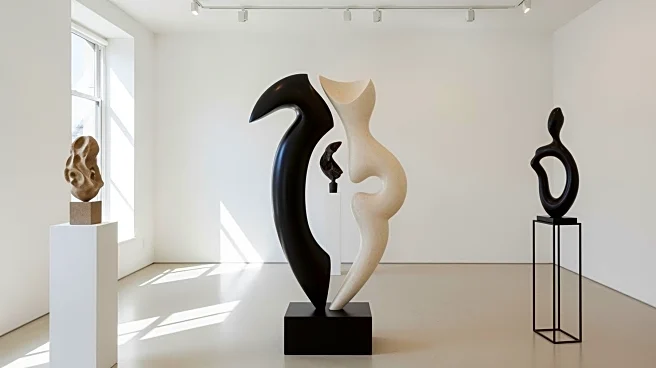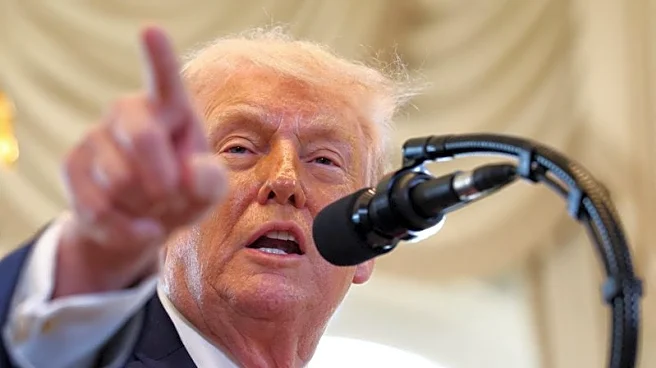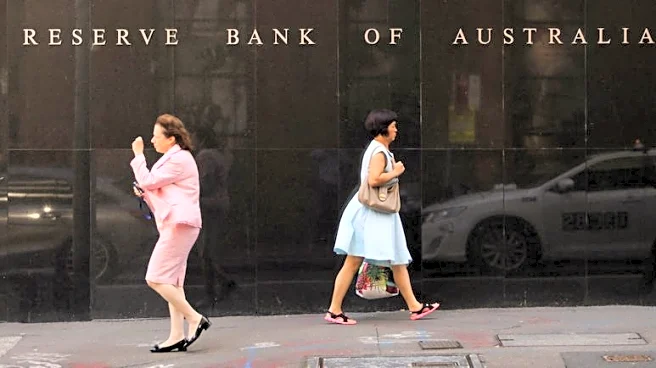What's Happening?
Peter Goulds, a prominent art dealer in Los Angeles, is transitioning his gallery, L.A. Louver, from its iconic Venice location to a new model. After 50 years of showcasing contemporary art, the gallery will
close its Venice space and operate from a 13,000-square-foot warehouse in Culver City. Goulds plans to focus on private dealings and fewer exhibitions annually. The Huntington Library, Art Museum, and Botanical Gardens will take over the gallery's archive. Goulds, known for his maverick approach, has been planning this shift to spend more time on his personal collection, which includes Australian indigenous art and works by Adolphe Monticelli.
Why It's Important?
The closure of L.A. Louver's Venice space marks a significant change in the Los Angeles art scene, reflecting broader trends in the global art market. Goulds' decision to pivot comes amid a contraction in the art market, with many dealers scaling back operations. This move could influence other galleries to reconsider their business models in response to market pressures. Goulds' focus on private dealings may set a precedent for how galleries adapt to changing economic conditions, potentially impacting artists, collectors, and the cultural landscape of Los Angeles.
What's Next?
As L.A. Louver transitions to its new model, the art community will be watching how Goulds' approach influences the gallery's future. The Culver City warehouse offers a different setting for exhibitions, which may attract a new audience. Goulds' focus on his personal collection could lead to increased interest in Australian indigenous art and Monticelli's works. The sale of the Venice property may also impact the local real estate market. Observers will be keen to see how Goulds' strategy affects the gallery's reputation and its role in the art world.
Beyond the Headlines
Goulds' decision to close the Venice space and shift focus highlights the evolving nature of art galleries in response to economic challenges. His emphasis on private dealings and personal collections may inspire other dealers to explore similar paths. The move underscores the importance of adaptability in the art market, where traditional models are increasingly questioned. Goulds' legacy as a maverick dealer may continue to influence the industry, encouraging innovation and resilience among galleries facing similar pressures.










